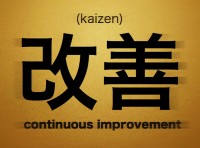6 Reasons Why You Shouldn’t Force It in Martial Arts Training
 In Jiu-jitsu, as in many martial arts, the goal is to develop great technique so as to use one’s energy with the greatest level of efficiency for maximum effect. Jiu-jitsu literally translates to mean “the art of pliancy or flexibility.” When students get stuck on a technique though, sometimes they will try to use power to force it to work. This not a good approach if your goal is to become a better martial artist. Water is often used as analogy of how we should train in the martial arts. It finds the path of least resistance and flows around its obstacles. Bruce Lee himself said: “Be like water making its way through cracks. Do not be assertive, but adjust to the object, and you shall find a way round or through it.”
In Jiu-jitsu, as in many martial arts, the goal is to develop great technique so as to use one’s energy with the greatest level of efficiency for maximum effect. Jiu-jitsu literally translates to mean “the art of pliancy or flexibility.” When students get stuck on a technique though, sometimes they will try to use power to force it to work. This not a good approach if your goal is to become a better martial artist. Water is often used as analogy of how we should train in the martial arts. It finds the path of least resistance and flows around its obstacles. Bruce Lee himself said: “Be like water making its way through cracks. Do not be assertive, but adjust to the object, and you shall find a way round or through it.”
There are a variety of practical reasons for not trying to force your way through martial arts techniques. Here are 6 examples from my own experience: (more…)
The Only Person Worth Competing Against in the Martial Arts
 We live in a society that emphasizes competition. We grow up on team sports, we strive to get the best marks in school to win scholarships over other applicants. In the career world, people compete for the best jobs, promotions, professional awards, even the respect of our colleagues. On the home front, people compete by comparing themselves to others, by trying to “keep up with the Jones’s” in terms of their homes and lifestyles, but also in terms of their spouses and children. (more…)
We live in a society that emphasizes competition. We grow up on team sports, we strive to get the best marks in school to win scholarships over other applicants. In the career world, people compete for the best jobs, promotions, professional awards, even the respect of our colleagues. On the home front, people compete by comparing themselves to others, by trying to “keep up with the Jones’s” in terms of their homes and lifestyles, but also in terms of their spouses and children. (more…)
4 Key Principles for Defending Against Larger Sized Attackers
Being a smaller woman, I’ve had to practice my Jiu-jitsu/self-defense techniques with a different mindset throughout my martial arts career of nearly 20 years. I’ve had to learn to compensate for my inherent physical disadvantages while making the most of my advantages. When it comes to self-defense though, I’ve identified 4 key principles that help provide the greatest efficiency when defending against larger sized attackers with greater strength when unarmed. (more…)
Can Older People Do Jiu-jitsu? Just Ask Rick…
Every so often a prospective student emails me and asks me if it’s realistic for an older person to take up Jiu-jitsu. Most of the time the people asking are in the 40s and overweight or out of shape. I’ve always said that it’s possible for anyone of pretty much any age and physical condition (provided doctor’s approval) to start training, but it was only after Rick Karnowski started training with us, that I had the perfect person to point toward as proof. (more…)
5 Tips for Maintaining Martial Arts Training (Or Any Hobby) as a Parent
 I recently started thinking about all the parents that train at my dojo and their training patterns. Some come to class like clockwork every week. Others come more sporadically. Then there are some who sign up with the best of intentions to train regularly and then fall away from training for months at a time because of their parental commitments. Not having any children myself, this got me thinking: Is it very challenging for parents to maintain their martial arts training because of their kids? Some people seem to have no trouble, others find it a struggle. What is the secret to keeping it going? With no experience to draw on, I turned to Facebook to ask my many martial arts friends for help answering these questions. The following tips are the result of said inquiry. (more…)
I recently started thinking about all the parents that train at my dojo and their training patterns. Some come to class like clockwork every week. Others come more sporadically. Then there are some who sign up with the best of intentions to train regularly and then fall away from training for months at a time because of their parental commitments. Not having any children myself, this got me thinking: Is it very challenging for parents to maintain their martial arts training because of their kids? Some people seem to have no trouble, others find it a struggle. What is the secret to keeping it going? With no experience to draw on, I turned to Facebook to ask my many martial arts friends for help answering these questions. The following tips are the result of said inquiry. (more…)
Celebrating Martial Arts Milestones
It’s important to live your life on purpose. Not to go through life letting everything happen without taking an active interest, but to have intentions for yourself so you keep developing as a person. When you achieve goals, it’s important to pay homage to them and celebrate the sense of accomplishment it brings.
Getting Into & Maintaining the Martial Arts Training Habit
One of the keys to excellence in the martial arts (or anything for that matter) is to keep doing it. It sounds simple, but many people fail to do this, even with the best intentions and the greatest appreciation for the art. So why does it happen? People simply fall out of the habit or fail to develop the habit in the first place. (more…)
Dealing with Less-than-Ideal Ukes in the Martial Arts
 Last year I wrote a post about how to be a good uke (training partner). But what happens when you have to work with someone that’s a less than an ideal uke? Depending on what the problems are with the person, there are different approaches you can take to help fix or minimize them. I’ll characterize a few types of less-than-ideal ukes and offer solutions for dealing with them in this post.
Last year I wrote a post about how to be a good uke (training partner). But what happens when you have to work with someone that’s a less than an ideal uke? Depending on what the problems are with the person, there are different approaches you can take to help fix or minimize them. I’ll characterize a few types of less-than-ideal ukes and offer solutions for dealing with them in this post.
Inexperienced Uke. Sometimes you’ll have to work with people who are new to the dojo and need a lot of understanding and guidance as they train. They may not be the most fun for you to train with when you want to go a little harder or work on more advanced techniques, but it’s important to help them take those brave first steps into the world of martial arts. Everyone has to start somewhere. You likely received guidance and encouragement when you first started. If you didn’t, think about how much better it would have been if you had and try to make the experienced better for your uke. They will appreciate it more than you can imagine, which helps add to the general positive atmosphere of your dojo. (more…)
The Role of Pain, Frustration & Violence in the Martial Arts
I recently read Stu Cooke Sensei’s blog post, The Beauty of Paradox, which concluded by saying that “Getting past the first batch of pain is likely the major barrier for people that try the martial arts”, saying that they don’t understand the point of the unpleasantness and don’t get to a point where they appreciate what it’s all about.
This is true for many people, but there are those who take their training a bit further, accepting the part that physical discomfort plays only to face a second sticking point: frustration. (more…)
10 Things You Can Do Outside the Dojo to Become a Better Martial Artist
1. Train Your Balance.
Improving your balance helps your kicks, throws, takedowns,
stances, and many other techniques in the martial arts. Try
standing on one foot while you put your shoes on and tie
them, one foot at a time. While you’re waiting in a
check-out line or for a bus, you can also train your
balance simply by standing on one foot. If you’re going to
do this, however, try to do it inconspicuously, unless you
don’t mind people thinking you’re a bit strange! Below are some extra tips for training balance. (more…)


 We're proud to announce that Lori O'Connell Sensei's new book, When the Fight Goes to the Ground: Jiu-jitsu Strategies & Tactics for Self-Defense, published through international martial arts publisher Tuttle Publishing, is now available in major book stores and online. More about it & where to buy it.
We're proud to announce that Lori O'Connell Sensei's new book, When the Fight Goes to the Ground: Jiu-jitsu Strategies & Tactics for Self-Defense, published through international martial arts publisher Tuttle Publishing, is now available in major book stores and online. More about it & where to buy it.